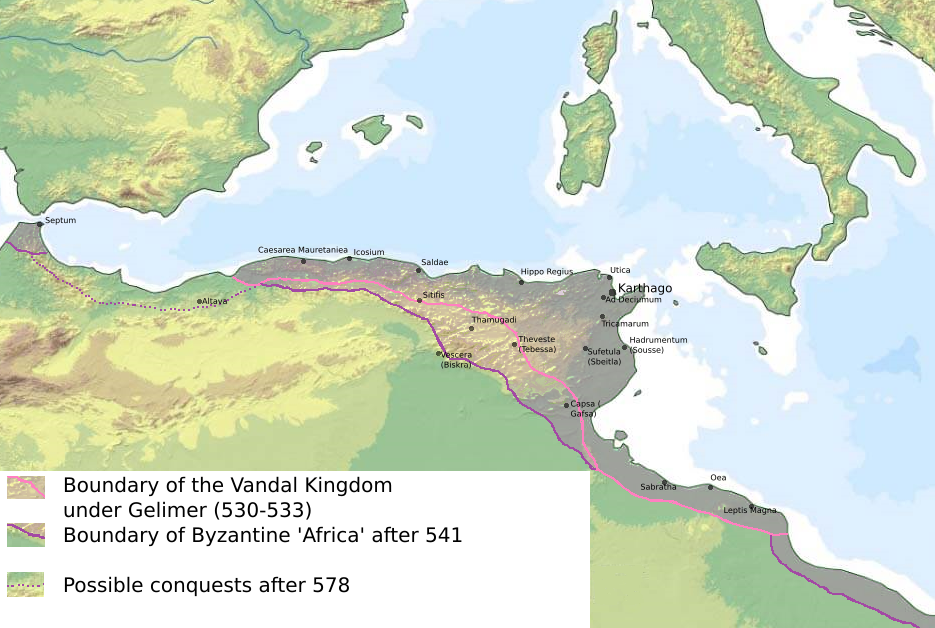
The quick vandalic war of 533-534 brought North Africa back to roman control for the first time in more than 100 years. The vast part of the population was catholic orthodox christian being ruled by the minority aryan christian vandals, who constantly persecuted chalcedonian christians in their realm. The net gain for the empire was immense, with its second breadbasket (after Egypt) back in control, the finances of the empire had a boost.
Coastal cities/regions close to the mediterranean region, like Carthago itself, Hippo Diarrhytus (Bizerte), Cartennae (Ténès), Saldae (Bejaia), Hippo Regius (Annaba), Hadrumentum (Sousse), Oea (Tripoli) and Leptis Magna were highly latinized and cores of african romance; while the hinterland was mostly indigenous, tamazigh speaking, with latinized pockets like Cirta (Constantina).
After the disastrous gothic campaign that left Italy desolate and in a quasi-anarchy state, boosted by the lombard invasions from the north, the majority of roman italy was completely lost, with only the southern part of the region being actively controlled by the byzzies, along with other controlled pockets in the peninsula like Ravenna, Venice and Rome itself.
Losing italy forced the empire to stick with the greek language, the lingua franca in the east. Italy was lost, north africa was still under rhomanian management. Despite of Constantinople being very distant from Carthago by land, roman naval power keep the two cities connected by sea.

A language question
For the sake of the argument, let's think about the byzantines being able to stop the arabs at the doors of Petra/Philadelphia in Jordan. Doesn't matter how: If they were able to defeat the arabs, if the arabs fail, if someone from the future give modern weapons to the romans, it doesn't matter. Palestine, Egypt, Syria: everything still roman. And North Africa still roman as well.
It's the middle ages. Greek officially replaced latin, as in OTL. Everybody speaks it as their second language. Local dialects develop naturally, but everybody can understand each other. Hellenization in rhomanian controlled southern italy lead the local latin language in its path of extinction. The rest of non-roman controlled italy still latinized though.
The question is what path would byzantine controlled north africa follow.
- Coastal cities are hellenized and greek replace latin in daily life. Influenced by other hellenized mediterranean cities like Syracuse, Rhegion, the cities of Cyrenaica, Crete and Cyprus, Carthago becomes Καρχηδών, Hippo becomes Ἱππὼν διάρρυτος, Cartennae becomes Καρτένναι. The hinterland still tamazigh speaking, but gradually being replaced by greek, like what happened when the arabs conquered the region in OTL. Everybody becomes Afrikoi. The westernmost hellenized region in the world.
- African Romance survives, absorbing greek and indigenous north african elements, but will keep as the lingua franca in africa. Sardinian becomes highly influenced by the language. In the hinterland the population is slowly latinized.
- (Most improbable to me) African Romance survives in the coast, but the hinterland isn't assimilated and slowly becomes independent in small political entities, like in Italy. Only some cities in the coast stay under roman control
